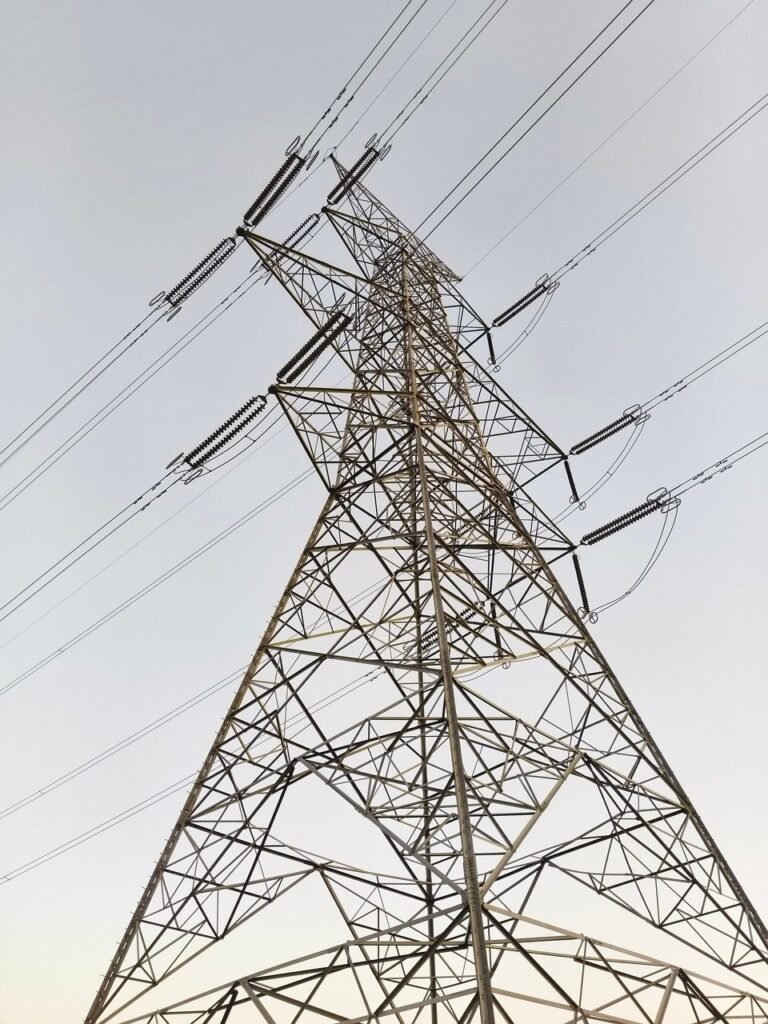Energy and Utilities
Energy Utilities Industry Challenges: Solving Heat Dissipation, Smart Power Distribution and Protection Issues
Extreme environment abuses equipment?
Sealing + constant temperature protection package “Life-saving guide”
As the infrastructure pillar of modern society, the energy utility industry covers key links such as power generation, transmission, distribution and terminal power consumption. Its stability and efficiency directly affect industrial production and people’s livelihood security. As the global energy transformation accelerates, the industry is facing challenges such as renewable energy grid connection, intelligent grid upgrade, and high-load operation of equipment. At the same time, it puts forward higher requirements for the reliability, energy efficiency management and environmental adaptability of power equipment.
The following problems are often faced in various application areas:
❌Equipment overheating and insufficient heat dissipation efficiency
❌Power equipment (such as transformers and control cabinets) are prone to performance degradation or even failure due to high temperature during long-term operation.
❌Complexity and safety hazards of power distribution
❌The wiring of traditional power distribution systems is cumbersome, which is prone to poor contact and short circuit risks, and has poor scalability.
❌Inadequate environmental adaptability and high maintenance costs
❌Equipment is prone to corrosion and aging in humid, dusty or extreme temperature environments, and frequent maintenance increases the operational burden.
❌Enterprises urgently need to reduce carbon emissions and operating costs through precise monitoring and energy-saving technologies.

POWER GENERATION FACILITIES
Power generation facilities rely on LEIPOLE thermal management and electrical connection solutions to protect vital control systems in demanding environments.
Modern power plants—whether traditional fossil fuel, nuclear, or renewable—depend on sophisticated control systems to monitor and manage complex generation processes. These systems must operate reliably in environments characterized by extreme temperatures, vibration, electromagnetic interference, and sometimes hazardous conditions.
Because continuous operation is essential for grid stability, power generation facilities require thermal management and electrical connection solutions that minimize maintenance requirements while maximizing reliability.
The energy sector’s leading utilities and equipment manufacturers trust LEIPOLE’s comprehensive range of protection solutions for their critical control systems.
Control Room Equipment Protection
Control rooms house sensitive electronic equipment that requires stable environmental conditions.
LEIPOLE’s enclosure air conditioners provide reliable cooling for control room cabinets containing servers, PLCs, and communication equipment. With cooling capacities from 300W to 4000W and operating temperature ranges of -20°C to +55°C, these units maintain precise internal temperatures regardless of ambient conditions. The high-efficiency compressors minimize energy consumption, while programmable controllers enable integration with building management systems.
For applications with lower heat loads, our fan filters offer economical cooling with airflows from 24m³/h to 1200m³/h. The tool-free maintenance design simplifies filter replacement, while IP55-rated models provide protection against dust in challenging environments.
2: Frequent changeover and adjustment. The packaging industry has a wide variety of products, and packaging specifications and forms need to be changed frequently. The control system needs to have the ability to quickly change and adjust, reduce downtime, and improve production flexibility.
3: Vibration and shock. Packaging machinery, such as filling machines, sealing machines, labeling machines, etc., will generate vibration and shock when running at high speed. The electrical control system needs to be able to withstand these vibrations and shocks to ensure the stability of operation.
4: Limited space and compact design requirements. Many packaging production lines have limited space, and the control cabinet needs to be as compact as possible to save space and improve the layout efficiency of the production line.
Outdoor Substation Equipment
Outdoor equipment faces temperature extremes, humidity, and exposure to the elements.
LEIPOLE’s outdoor-rated air conditioners with IP55 protection withstand harsh weather conditions while maintaining optimal internal temperatures for substation control equipment. The corrosion-resistant coating provides additional protection in coastal or industrial environments.
For preventing condensation during cold periods, our PTC heaters and Axial fan heaters work in conjunction with electronic thermostats to maintain temperatures above the dew point. The self-regulating PTC technology automatically adjusts power consumption based on ambient conditions, providing energy-efficient protection against moisture damage.
Demand Response Systems
Demand response infrastructure enables dynamic load management in response to grid conditions.
LEIPOLE’s series air conditioners protect control equipment for demand response systems, maintaining optimal operating temperatures despite varying ambient conditions. The high-efficiency design minimizes energy consumption, supporting overall efficiency objectives.
For connections to building management systems, our screw terminal blocks and spring terminal blocks provide reliable interfaces between control equipment and field devices. The modular design facilitates system expansion or reconfiguration as energy management strategies evolve.
INDUSTRY STATISTICS AND TRENDS
As of 2023, the global energy transition continues to accelerate, with renewable energy investments exceeding $500 billion annually. Traditional utilities are rapidly adapting their infrastructure to accommodate distributed energy resources, requiring sophisticated control and protection systems.
The smart grid market is projected to reach over $90 billion by 2026, with substantial investments in grid automation and monitoring systems. These advanced control systems require reliable thermal management to ensure their continuous operation in varying environmental conditions.
Grid resilience has become a primary concern for utilities worldwide, with increasing focus on protecting critical infrastructure from both environmental challenges and security threats. Temperature management is recognized as a critical factor in ensuring the reliability and longevity of protection and control systems.
LEIPOLE is committed to supporting the evolution of energy utility infrastructure with innovative, reliable, and efficient solutions that address the industry’s most pressing challenges. Our engineering team continuously develops new products to meet emerging needs in this dynamic sector, ensuring our customers remain at the forefront of utility technology.
